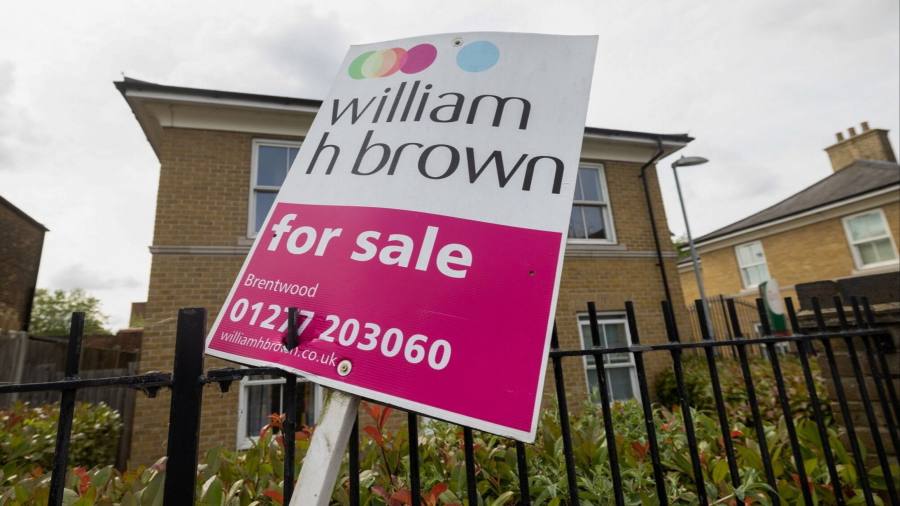
Receive free UK house prices updates
We’ll send you a myFT Daily Digest email rounding up the latest UK house prices news every morning.
UK house prices edged up unexpectedly between May and June, showing resilience in the face of surging mortgage rates, according to data published on Friday.
Mortgage provider Nationwide said property prices rose 0.1 per cent this month compared with May, surprising economists polled by Reuters, who had forecast a 0.3 per cent fall.
Compared with June last year, house prices were down 3.5 per cent, largely unchanged from the 3.4 per cent in the previous month and better than the minus 4 per cent forecast by analysts.
This, however, was still the fastest annual decline since 2009.
Martin Beck, chief economic adviser to the EY Item Club, a consultancy, said that given the scale of previous price gains and the headwinds facing the housing market from rising mortgage rates and other financial pressures, “house prices continue to display a surprising degree of resilience”.
However, Jeremy Leaf, an estate agency in north London, cautioned that the figures were “not yet giving sufficient weight to the impact of recent higher than expected increases in the cost of living and interest rates”.
Mortgage rates surged at the end of May after official data showing hot wage growth and inflation pushed up interest rates expectations. Markets are pricing that the Bank of England will raise rates to 6.25 per cent by the end of the year, up from 5 per cent now.
For people coming off two-year, fixed-rate deals, with mortgage rates approaching 6 per cent, a new two-year deal equates to an increase of £385 a month for a typical borrower.
Those coming off five-year deals face an increase of about £315 a month for a typical mortgage borrower, according to calculations by Nationwide.
Robert Gardner, Nationwide’s chief economist, said the sharp increase in borrowing costs was “likely to exert a significant drag on housing market activity in the near term”.
Andrew Goodwin, chief UK economist at the consultancy Oxford Economics, forecast a 13 per cent peak-to-trough fall in house prices, with transactions staying “extremely low”.
“We think it is just a matter of time before the spike in mortgage rates in recent weeks causes a new leg down in prices,” he said.
Mortgage payments are rising while house prices remain high relative to earnings, making it difficult for households to save for a deposit.
Nationwide calculated that a 10 per cent deposit on a typical first-time buyer home is equal to about 55 per cent of gross annual income. That is down from the all-time highs of 59 per cent in late 2022, but still marginally above the levels before the 2008 global financial crisis.
Data from the mortgage provider showed that the average house price was £262,239 in June — down from a peak of £273,751 in August last year but still £46,000 more than in February 2020, before the onset of the Covid-19 pandemic.
Fast-rising rents are also an impediment for people looking to save for a deposit. Gareth Lewis, managing director of property lender MT Finance, said properties were “taking longer to sell as now they are sitting there for a reasonable period of time while buyers get their ducks in the row from a mortgage perspective”.
All regions of the UK except Northern Ireland reported a contraction in house prices in the three months to June compared with the same period last year. At 4.3 per cent, London reported the sharpest fall of all regions except East Anglia, where house prices dropped 4.7 per cent.